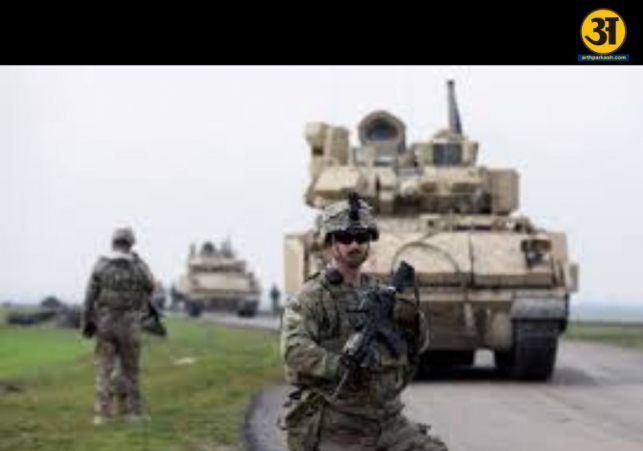

On June 3, 2025, the Israeli military said that two projectiles crossed from Syria into Israel. These projectiles fell in open areas without causing damage or casualties. The Israeli Defense Minister, Israel Katz, reacted strongly. He said that Syrian President Ahmed al-Sharaa is directly responsible for these attacks. Katz warned that Israel would respond fully to any threats or attacks from Syria.
The Israeli army said that after the projectiles landed, they attacked southern Syria with artillery fire. The attacks targeted areas near the Daraa province, close to the border with the Israeli-occupied Golan Heights. Syrian state media confirmed the Israeli strikes and reported "significant human and material losses."
This situation comes amid ongoing tensions between Israel and Syria. For many years, these two countries have been on opposite sides of conflicts in the Middle East. Recently, however, Syria and Israel have held direct talks to try to reduce tensions, marking a rare diplomatic step.
The Syrian foreign ministry said it had not yet confirmed the reports about the projectile launches toward Israel. In an official statement, Syria denied threatening any party in the region. They also said that many groups might want to create instability in the area for their own benefit, making it unclear who exactly fired the projectiles.
Meanwhile, several Arab and Palestinian news sources claimed that a small, little-known group called the “Martyr Muhammad Deif Brigades” was responsible for firing the projectiles. This group appears to reference Muhammad Deif, a Hamas military leader killed in an Israeli strike in 2024. Reuters, the news agency, could not independently verify these claims.
The border area near Daraa and the Golan Heights has seen increased tensions in recent weeks. There have been reports of Israeli military movements and incursions into nearby Syrian villages. Some villagers have said that Israeli forces have prevented them from planting crops this season. The area remains fragile and prone to conflict.
Israel has also carried out many air strikes inside Syria. These strikes have targeted military infrastructure and sites belonging to groups Israel considers hostile. The Israeli campaign intensified after new leadership took charge, with the aim of protecting Israeli security from threats across the border.
Since the 1967 Arab-Israeli war, Israel has occupied the Syrian Golan Heights, a strategic area. After Syrian President Bashar al-Assad was ousted in December, Israel expanded its control over more parts of Syria, citing concerns about the extremist groups ruling parts of the country.
At the same time as the Syrian projectile incident, Israel reported intercepting a missile fired from Yemen. The missile was shot down near the city of Ashkelon. Yemen’s Iran-aligned Houthi rebel group said they fired the missile targeting Israel’s port city of Jaffa. The Houthis have launched several attacks on Israel recently, saying they support Palestinians during the ongoing Israeli conflict in Gaza.
The Middle East has been a region of conflict and complex politics for many decades. Israel and Syria have a long history of hostility and war. Although there have been talks to reduce tensions, the border areas remain highly unstable.
The Golan Heights is a key strategic area that Israel captured during the 1967 war. It remains internationally disputed, with Syria demanding its return. Israel’s control over this area plays a big role in the ongoing conflicts.
The recent projectile launches and Israeli retaliatory strikes add to the list of clashes that happen frequently along the border. Both sides blame each other for aggression, and small militant groups often try to provoke conflict.
The claim of responsibility by the “Martyr Muhammad Deif Brigades” suggests that militant groups linked to Hamas or other organizations might be behind the attacks. Hamas is a Palestinian militant group that has been fighting Israel for many years. Its military leader Muhammad Deif was killed in 2024 in an Israeli airstrike, leading to the formation of new groups named after him.
The Syrian government denies involvement but warns about other groups trying to destabilize the region. This points to the complexity of the conflict, where many armed groups with different goals operate inside Syria and around Israel.
Israel’s Defense Minister Israel Katz’s strong statement highlights the seriousness of the situation. Israel holds the Syrian government responsible for anything fired from its territory. This stance increases the risk of wider military conflict if attacks continue.
The artillery attack on southern Syria by Israel shows how Israel quickly responds to any perceived threat. The reported casualties and damage in Syria add to the rising tensions.
The international community watches this situation closely because the Middle East remains fragile. Any new conflict between Israel and Syria could draw in other countries and increase regional instability.
Meanwhile, the missile fired from Yemen by the Houthis shows how the conflict in the Middle East spreads across different countries. The Houthis support Palestinians in Gaza and use attacks against Israel to show solidarity. Their missile attack on Jaffa was intercepted, but it raised fears of a larger war involving more players.
In summary, two projectiles were fired from Syria into Israel, landing safely in open areas. Israel blamed Syrian President Ahmed al-Sharaa and promised a full response. Israel retaliated with artillery strikes on southern Syria, causing reported damage and casualties.
The Syrian government denied responsibility and said it was not threatening Israel. It suggested other groups could be trying to destabilize the region.
This event is part of ongoing tension between Israel and Syria, especially near the Golan Heights. Both sides remain on edge, with recent military actions raising fears of escalation.
At the same time, Israel intercepted a missile from Yemen’s Houthi rebels, who support Palestinians in Gaza. This shows the wider regional impact of the conflict.
The situation remains tense, with the possibility of further clashes and political consequences. The world is watching closely, hoping for calm but preparing for more unrest.